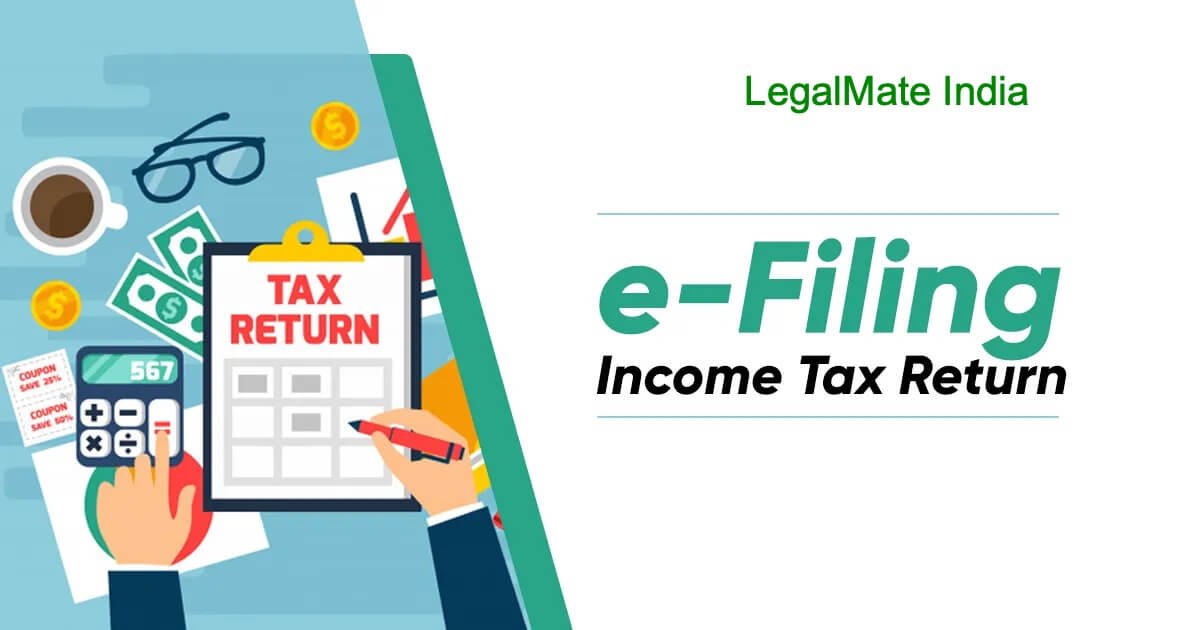In a world where financial matters can be complex and perplexing, one thing is for certain – the obligation to file your income tax return. Whether you’re an individual, an NRI, a company, or a trust, this annual ritual is not to be taken lightly.
In this comprehensive guide, we will walk you through the intricacies of Income Tax Filing, the different return types, their applicability, penalties for late filing, and crucial income tax deductions that can help you save on your tax liability. So, let’s dive right in!
Table of Contents
- Introduction
- Types of Income Tax Returns
- ITR-1: For Individuals with Less than Rs. 50 Lakhs Annual Income
- ITR-2: For NRIs, Directors, and Those with Capital Gains
- ITR-3: For Professionals and Proprietorship Businesses
- ITR-4: For Taxpayers under Presumptive Taxation Scheme
- ITR-5: For Partnership Firms, LLPs, and More
- ITR-6: For Registered Indian Companies
- ITR-7: For Exempt Entities
- Mandatory Filing
- Penalties for Late Filing
- Income Tax Return Due Dates
- For Individuals
- For Companies and Taxpayers Requiring Tax Audit
- Tax Audit Limit
- Top Income Tax Deductions
- Section 80C Deduction
- Section 80D Deduction
- Section 80EE Deduction
- Section 80E Deduction
- Section 80G Deduction
- Conclusion
- FAQs
Introduction Income Tax Return (eFiling ITR)
Income Tax Filing, commonly referred to as ITR eFiling, is the annual practice of reporting your income to the government and calculating your tax liability. This process is a legal obligation for individuals, NRIs, companies, partnership firms, LLPs, and trusts. The income tax department plays a crucial role in ensuring compliance and collecting the revenue needed for various government programs.

Types of Income Tax Return
ITR-1: For Individuals with Less than Rs. 50 Lakhs Annual Income
ITR-1 is designed for individuals with a straightforward financial situation. If you earn less than Rs. 50 lakhs through salary or pension and have only one house property, this form is for you. It’s a straightforward way to calculate income tax for this category of taxpayers.
ITR-2: For NRIs, Directors, and Those with Capital Gains
If you’re an NRI, a company director, or have income from capital gains, foreign sources, or multiple house properties, ITR-2 is your choice. This form ensures that even complex financial situations are considered when calculating income tax.
ITR-3: For Professionals and Proprietorship Businesses
Professionals and sole proprietors conducting business in India should use ITR-3 to file their taxes. The income tax department requires this form to account for the diverse sources of income in this category.
ITR-4: For Taxpayers under Presumptive Taxation Scheme
Taxpayers enrolled under the presumptive taxation scheme can use ITR-4. To be eligible, your business income should be less than Rs. 2 crores or professional income less than Rs. 50 lakhs. The presumptive taxation scheme simplifies the process of calculating income tax for eligible taxpayers.
ITR-5: For Partnership Firms, LLPs, and More
Partnership firms, LLPs, associations, and bodies of individuals should choose ITR-5 to report their income and tax calculations. This form ensures that even complex business structures are accounted for when calculating income tax.
ITR-6: For Registered Indian Companies
Companies registered in India are required to file ITR-6. The income tax department uses this form to ensure that all registered companies are fulfilling their tax obligations.
ITR-7: For Exempt Entities
Entities claiming exemption as charitable/religious trusts, political parties, scientific research institutions, colleges, or universities should opt for ITR-7. This form helps the income tax department track the financial activities of these entities.
Mandatory Filing : Personal Tax Return Filing
Mandatory income tax return filing applies to individuals, NRIs, partnership firms, LLPs, companies, and trusts. The income threshold for individuals and NRIs is Rs. 2.5 lakhs per annum. For proprietorship firms and partnership firms, it’s mandatory, regardless of income or loss.
Penalties for Late Filing
Filing your income tax return late can result in penalties, and the income tax department is quite stringent about enforcing these penalties. The penalty depends on the timing of filing and your taxable income:
- Late Filing between 1st August and 31st December: Rs. 5000
- Late Filing After 31st December: Rs. 10,000
- Penalty if taxable income is less than Rs. 5 lakhs: Rs. 1000
Income Tax Return Filing Due Dates
The due date for individual taxpayers is 31st July each year, while companies and those requiring a tax audit have until 30th September. The threshold for requiring a tax audit is defined by Section 44AD of the Income Tax Act.
- Business: Tax audit is mandatory if the total sales turnover or gross receipts exceed Rs. 1 crore in any previous year.
- Professional: Tax audit is required if gross receipts in the profession exceed Rs. 50 lakhs in any previous year.
- Presumptive Taxation Scheme: Tax audit is necessary if a person enrolled under the presumptive taxation scheme and total sales or turnover exceed Rs. 2 crores.
TopIncome Tax Filing Deductions
To minimize your tax liability and ensure accurate income taxation, consider these key deductions:
Section 80C Deduction
You can claim deductions of up to Rs. 1.5 lakhs for investments in various instruments, including PF, PPF, LIC premiums, National Savings Certificate, and more. This deduction significantly affects your income taxation.
Section 80D Deduction
Claim deductions for medical insurance payments and preventive health checkup fees up to Rs. 5000 under Section 80D. This not only ensures good health but also influences your income taxation.
Section 80EE Deduction
Deduct up to Rs. 1 lakh on interest paid through EMI for your first home loan, provided the loan amount doesn’t exceed Rs. 35 lakhs and the property value is below Rs. 50 lakhs. This deduction can have a substantial impact on your income taxation.
Section 80E Deduction
Claim deductions for interest on higher education loans under Section 80E. This deduction can significantly affect your income taxation while encouraging educational advancement.
Section 80G Deduction
Deductions can be claimed on donations to certain funds and charitable institutes within limits. This not only supports noble causes but also impacts your income taxation.
Conclusion
Income Tax Filing is a critical financial responsibility that affects individuals, businesses, and entities alike. Complying with the tax laws, filing on time, and optimizing deductions can significantly impact your financial well-being.
In case you have any questions or require assistance with your income tax return, feel free to reach out to IndiaFilings. Our dedicated Tax Experts are here to help you navigate the complexities of the Indian tax system.
FAQs
- Is it mandatory to file an income tax return every year?
- What are the penalties for late filing of income tax returns?
- Can I claim deductions for my children’s education expenses?
- How can I check if I need a tax audit?
- What are the key tax deductions available for individuals in India?






